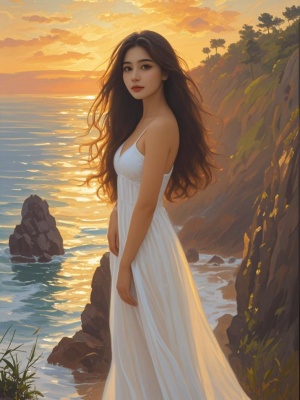What Are the Best Oil Paints? A Comprehensive Guide
Oil paints have been a favorite medium for artists for centuries, offering rich colors, depth, and versatility. However, with so many brands and types available, choosing the best oil paints can be overwhelming. This guide will explore the key factors to consider, compare top brands, and provide expert recommendations to help you make an informed decision.
Understanding Oil Paint Quality
Pigment Concentration and Lightfastness
The quality of oil paints primarily depends on two factors: pigment concentration and lightfastness. High-quality paints contain a higher percentage of pure pigment, resulting in more vibrant colors and better coverage. Lightfastness refers to how resistant the pigment is to fading when exposed to light. Look for paints with an ASTM lightfastness rating of I (excellent) or II (very good).
Binder Quality
The oil used as a binder (typically linseed, walnut, or safflower oil) affects the paint's working properties and drying time:
- Linseed oil: Most common, dries relatively quickly
- Walnut oil: Slower drying time, smoother consistency
- Safflower oil: Used for whites and light colors to prevent yellowing
Top Oil Paint Brands Compared

Professional-Grade Paints
For serious artists, professional-grade paints offer the highest quality:

- Old Holland: Known for exceptional pigment load and traditional production methods
- Michael Harding: Favored by many contemporary artists for their purity
- Williamsburg: Offers excellent consistency and color range
Student-Grade Options
For beginners or those on a budget, these brands provide good quality at lower prices:
- Winsor & Newton Winton
- Gamblin 1980
- Grumbacher Academy
Choosing the Right Oil Paints for Your Needs
Problem: Limited Budget
Solution: Start with a limited palette of high-quality primary colors and mix your own variations. This approach is cost-effective and helps develop essential color mixing skills. Consider our AI Painting Guide for digital alternatives to practice color theory.
Problem: Environmental Concerns
Solution: Look for brands that use non-toxic pigments and sustainable practices. Natural Earth Paint and M. Graham both offer eco-friendly options.
Essential Colors for Your Palette
Building a basic oil paint palette doesn't require dozens of tubes. Here are the essential colors most artists need:
- Titanium White
- Cadmium Yellow Medium
- Cadmium Red Medium
- Ultramarine Blue
- Burnt Umber
- Ivory Black
Conclusion: Finding Your Perfect Oil Paints
The "best" oil paints ultimately depend on your artistic style, budget, and personal preferences. Professional artists might prefer the highest pigment load of Old Holland, while students may find Winsor & Newton Winton perfectly adequate. Remember that even the best paints won't compensate for poor technique, so consider combining traditional painting with digital tools like those featured in our Gallery to enhance your skills.
For more artistic inspiration and techniques, explore our collection of landscape scenes or learn about digital alternatives in our AI Art Guide.
